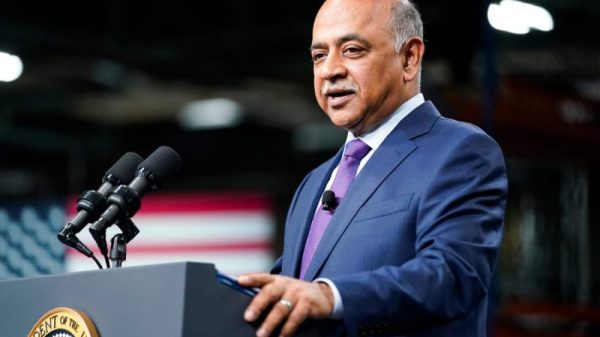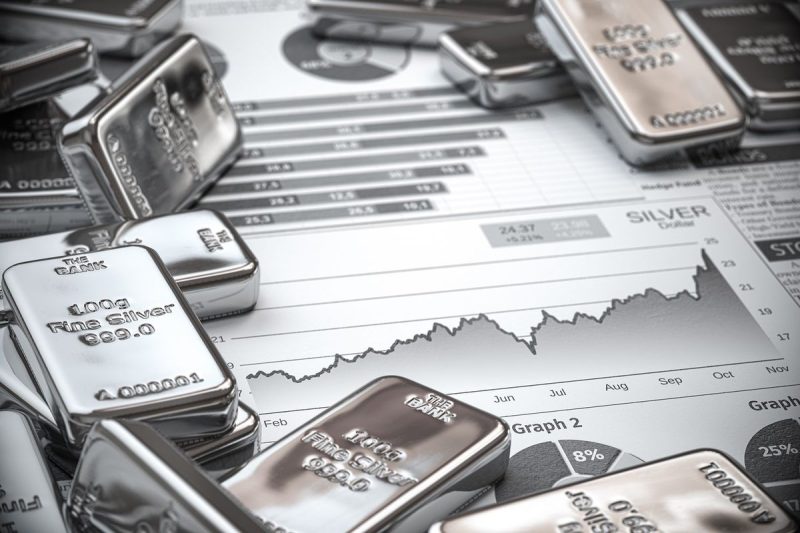Like its sister metal gold, silver has been attracting renewed attention as a safe-haven asset.
Although it continues to exhibit its hallmark volatility, many silver investors believe that a bull market is on the way for the precious metal. Experts are optimistic about the future, and as a result, some market watchers are putting forth price forecasts and asking themselves, “What was the highest price for silver?”
The answer reveals how much potential there is for the silver price to rise. Read on for a look at silver’s historical moves, and what they could mean for both the price of silver today and the white metal’s price in the future.
How is silver traded?
Before discovering what the highest silver price was, it’s worth looking at how the precious metal is traded. Knowing the mechanics behind how it changes hands can be useful in understanding why and how its price changes on a day-to-day basis and beyond.
Put simply, silver bullion is traded in dollars and cents per ounce, with market activity taking place worldwide at all hours, resulting in a live silver price. Key commodities markets like New York, London and Hong Kong are just a few locations where investors trade the metal. London is seen as the center of physical silver trade, while the COMEX division of the New York Mercantile Exchange, called the NYMEX, is where most paper trading is done.
There are two popular ways to go about investing in silver. The first is through purchasing silver bullion products such as bullion bars, bullion coins and silver rounds. Physical silver is sold on the spot market, meaning that in order to invest in silver this way, buyers pay a specific price for the metal — the silver price per ounce — and then have it delivered immediately.
The second is accomplished through paper trading, which is done via the silver futures market, with participants entering into futures contracts for the delivery of silver at an agreed-upon price and time. In such contracts, two positions can be taken: a long position to accept delivery of the metal or a short position to provide delivery.
Paper trading might sound like a strange route to take when one wants to invest in silver, but it can provide investors with flexibility that they wouldn’t get from buying and selling bullion. The most obvious advantage is perhaps the fact that trading in the paper markets means silver investors can benefit long term from holding silver without needing to store it. Furthermore, futures trading can offer more financial leverage in that it requires less capital than trading in the physical market.
Market participants can also invest in silver through exchange-traded funds (ETFs). Investing in a silver ETF is similar to trading a stock on an exchange, and there are several silver ETFs to choose from. For instance, some ETFs focus solely on physical silver bullion, while others focus on silver futures contracts. Still others focus on the silver stocks or follow the live silver price.
How was silver priced historically?
Silver hit US$48.70 per ounce, the highest silver price to date, towards the end of the 1970s.
However, the price didn’t exactly reach that level by honest means. As Investopedia explains, the metal’s bid price was driven by the Hunt brothers, two wealthy traders who attempted to corner the market by buying not only physical silver, but also silver futures — they took delivery of those silver futures contracts instead of taking legal tender in the form cash settlements. Their exploits ultimately ended in disaster: On March 27, 1980, they missed a margin call and the silver market price plunged to US$11.
Silver wouldn’t test that high again until 2011. At that time, its price uptick came on the back of very strong silver investment demand, and was more than double the 2009 average silver price of US$14.67. The chart below from Kitco spans from the start of January 2010 to October 2023. It shows that silver reached US$47.94 in April 2011 before plummeting in the years that followed.
Silver price chart, October 2010 to October 2023.
Chart via Kitco.
The chart also shows the upward trend in the silver price starting in mid-2020, when it was spurred on by the economic uncertainty surrounding the COVID-19 pandemic. The price of silver breached the key US$26 level in early August 2020, and soon after tested US$30; however, it failed to make substantial progress past that.
Although the silver price surged by 30 percent in the spring of 2023, briefly rising above US$26 in early May, the precious metal had cratered back down to US$20.90 in early October. Later in the month, silver advanced toward the US$23 level on the back safe-haven demand due to the Israel-Hamas war and the threat of higher-for-longer interest rates.
Market watchers are curious as to when the silver price will continue its upward trajectory. Only time will tell, and it will really depend on the white metal’s ability to break through the critical US$30 ceiling.
Like other metals, the silver spot price is most heavily influenced by supply and demand dynamics. However, as the information above illustrates, the silver price can be very volatile. That’s partially due to the fact that the metal is subject to both investment and industrial metal demand within the global markets.
In other words, it’s bought by investors who want it as a store of wealth, as well as by manufacturers looking to use it for different applications that are incredibly varied. For example, silver has diverse technological applications and is used in devices like batteries and catalysts, but it’s also used in medicine and in the automotive industry.
In terms of supply, the world’s three top producers of the metal are Mexico, China and Peru. Interestingly, even in those countries the white metal is usually a by-product — for instance, a mine producing primarily gold might also have silver output.
“We are expecting strong growth in global mined silver production next year, largely driven by the continued rise in Mexican output as projects such as Juanicipio and Las Chispas ramp up,” he said. “However, demand is expected to continue to outpace supply, and therefore the market will remain in deficit.”
Is the silver price manipulated?
As a final note on silver, it’s important for investors to be aware that manipulation of prices is a major issue in the space.
For instance, in 2015, 10 banks were hit in a US probe on precious metals manipulation. Evidence provided by Deutsche Bank (NYSE:DB) showed “smoking gun” proof that UBS Group (NYSE:UBS), HSBC Holdings (NYSE:HSBC), the Bank of Nova Scotia (NYSE:BNS) and other firms were involved in rigging silver rates from 2007 to 2013. In May 2023, another long-standing silver price manipulation lawsuit filed in 2014 against HSBC and the Bank of Nova Scotia was dismissed by a US court.
JPMorgan Chase (NYSE:JPM) has been long at the center of silver manipulation claims as well. For years the firm has been in and out of court for the accusations. In 2020, JPMorgan agreed to pay US$920 million to resolve federal agency probes regarding the manipulation of multiple markets, including precious metals.
In 2014, the London Silver Market Fixing stopped administering the London silver fix, which had been used for over a century to fix the price of silver. It was replaced by the LBMA Silver Price, which is run by ICE Benchmark Administration, in a bid to increase market transparency.
Market watchers like Ed Steer have said that the days of silver manipulation are numbered, and that the market will see a significant shift when the time finally comes.
Investor takeaway
While there’s a concrete answer to the question “What was the highest price for silver?” it’s anyone’s guess whether it will reach those heights once again. Even so, many commentators say prospects are bright for buying silver — and no matter the current state of the market, investors will no doubt be watching to see how the metal fares.
Securities Disclosure: I, Melissa Pistilli, currently hold no direct investment interest in any company mentioned in this article.


































